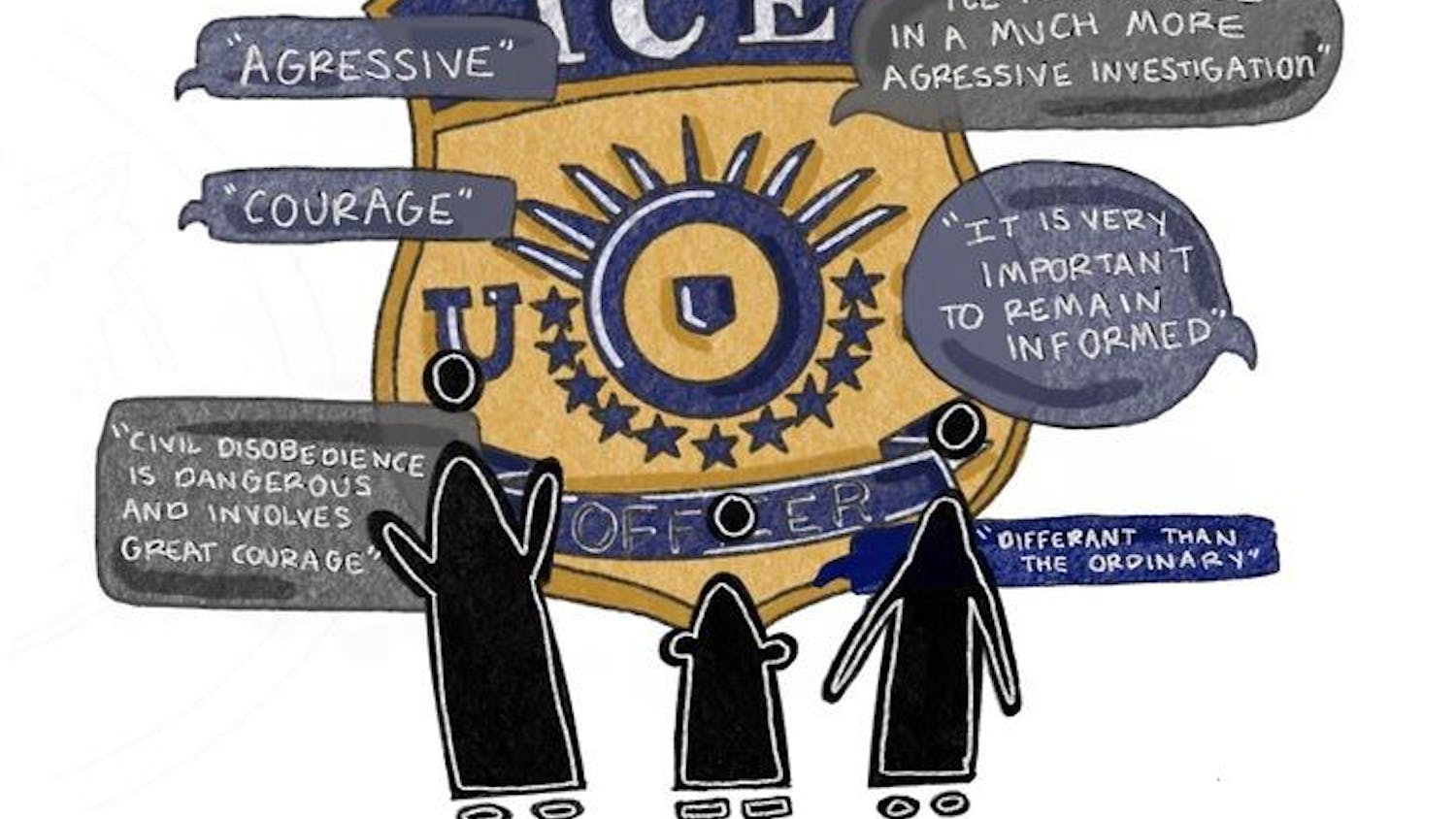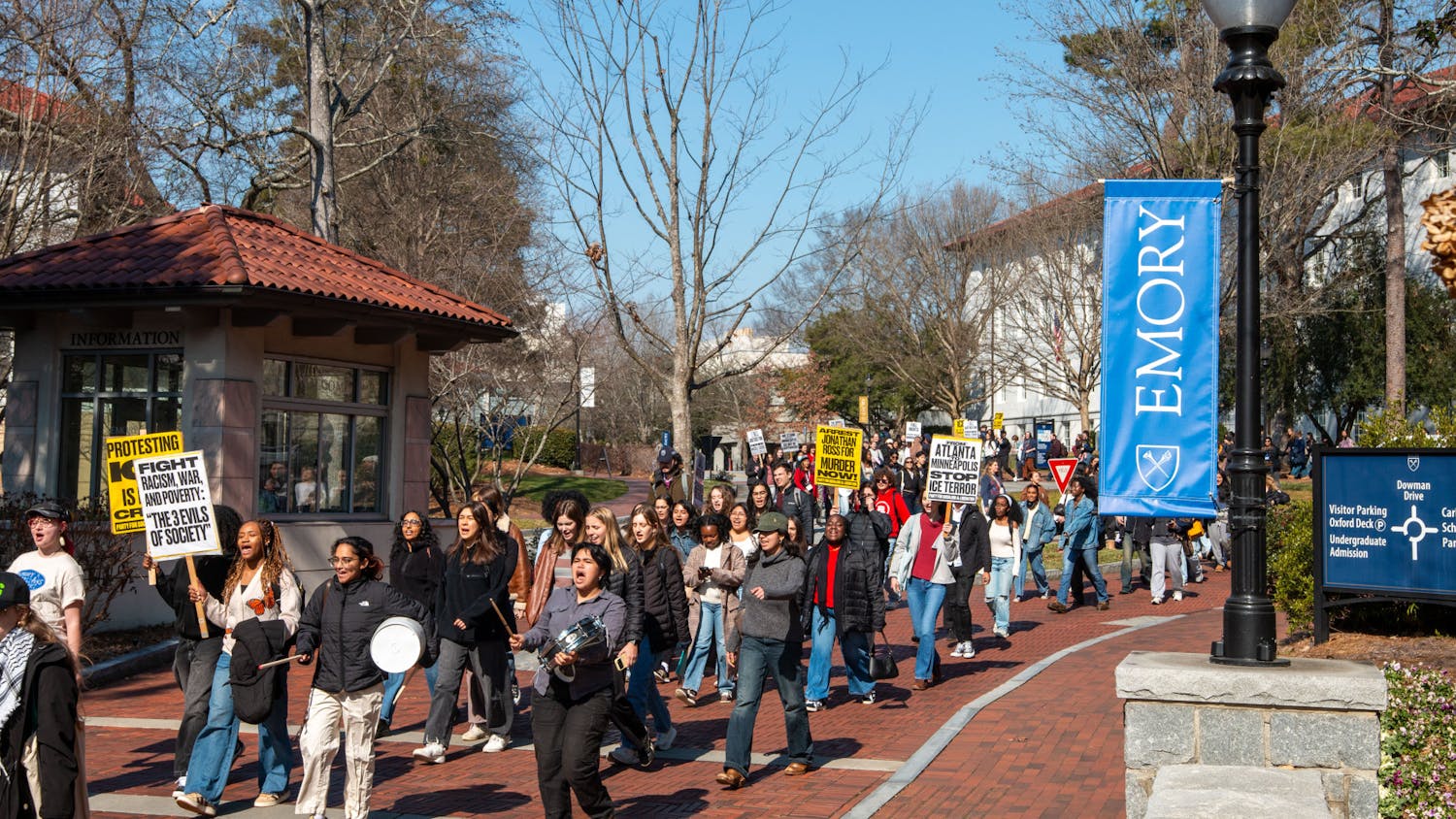While many Emory faculty members juggle a virtual fall semester during a pandemic, one professor seeks to take over a congressional seat previously occupied by the “conscious of Congress.” Robert Franklin, the James T. and Berta R. Laney professor in moral leadership at the Candler School of Theology, is running to replace deceased civil rights icon John Lewis for the remainder of the former U.S. representative’s term, which ends on Jan. 3, 2021.

Following Lewis’ death on July 17, seven Georgia political figures declared their intent to run in the Sept. 29 special election for Georgia’s 5th Congressional district seat. As Franklin prepares his congressional bid, continuing Lewis’ legacy is foremost on his mind.
“All of us in this race are in some way or the other proteges of John Lewis,” Franklin said of the six other candidates. “Our job is in the short term to maximize every day in office and prepare the way for the congressman in the next term.”
The Democratic candidates include former Atlanta City Councilmember Kwanza Hall, Lewis’ 2020 primary opponent Barrington Martin and former State Representatives Mable Thomas and Keisha Waites. Georgia Minister Steven Muhammad is running as an Independent and customer service representative Chase Oliver is running as a member of the Libertarian Party.
A committee, which included Atlanta Mayor Keisha Lance Bottoms and former gubernatorial candidate Stacey Abrams, named Georgia Democratic Party Chairwoman Nikema Williams the Democratic nominee to run for the next full, two-year term in the Nov. 3 general election. Franklin, who was on the five-person shortlist for the nomination, declared for the special election shortly before the July 31 deadline.
As a graduate of Harvard Divinity School (Mass.) and the University of Chicago School of Divinity (Ill.), Franklin demonstrates significant experience in higher education. From 2007 to 2012, he served as the 10th president of Morehouse College (Ga.) and in 2016 became a senior adviser to former University President Claire E. Sterk.
Franklin believes his experiences will be valuable at a time when academic institutions nationwide look toward an unprecedented year.
“There are a lot of Congressmen who say a lot about higher education,” Franklin said. “I don’t know how many have been college presidents. It will be value-adding.”
People who taught after careers in public service always impressed Franklin, and he hopes to campaign while teaching a course about the intersection of religion and belief systems in politics. If elected, Franklin plans to balance both positions simultaneously.
“The campaigning is done outside my Emory time,” Franklin said. “I will teach my classes [and] draw upon conversations with Emory students in real-time,” adding that he plans to speak more about Lewis’ legacy in his class.
His most recent book, “Moral Leadership: Integrity, Courage, Imagination,” examines ethical leadership as a necessity for responding to the country’s current quandaries. Franklin ran because he saw a need for more “moral and intellectual leaders” in Congress to contribute to the vision for the nation and policy development.
Franklin enjoyed frequent interaction with the late Congressman, and they often discussed the relationship between ethics and politics at length. Franklin aims to continue Lewis’ legacy by defending voting rights.
“The eyes of the nation are on this district, the next occupant will carry a kind of mantle,” Franklin said. “We want to use it to mourn him properly and advance his legislative agenda.”
If elected, Franklin plans to strengthen and rename the Voting Rights Act of 1965, a bill lauded as one of the greatest legislative achievements and manifestations of Lewis’ career. Franklin also wants to address the growing “internet divide,” a problem many low-income students face as they prepare for online instruction without sufficient internet connectivity. Franklin suggested a collaboration between the government and the private sector to help bridge this gap but did not provide specific details.
“I want to focus the nation’s attention on the state of COVID in underserved communities and the needs of under-resourced communities,” Franklin said, noting that public health infrastructure in Atlanta, specifically the Centers for Disease Control and Prevention (CDC), could be more effectively used.
“The CDC has enormous capacity and skills we can draw on that are currently being underutilized,” he said. “I could make ‘good trouble’ on behalf of CDC and public health infrastructure in Atlanta.”







